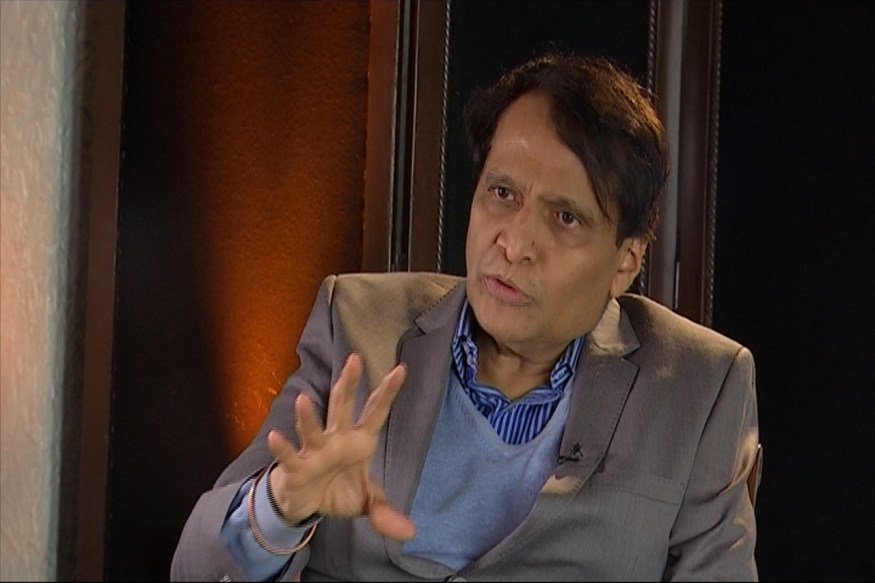Advantage Health Care - India 2018: Govt. committed to provide quality healthcare, says Suresh Prabhu
Efforts in India have been to reduce the cost of healthcare services, while taking journey towards universal coverage, and trying to offer and share resources with the global citizens.

- Country:
- India
Mr. Suresh Prabhu, Minister of Commerce and Industry, Government of India, today said that government is committed to providing quality health care within the country and outside through promoting the service sector. Speaking via video conferencing at the 'Advantage Health Care - India 2018' (4th International Summit on Medical Value Travel) organized by FICCI jointly with the Department of Commerce, Ministry of Commerce & Industry, Government of India, Mr. Prabhu said, "We have set aside almost Rs. 5,000 Cr or approximately 700 million dollars for enhancing the overall services sector including healthcare."
Mr. Sudhanshu Pandey, Additional Secretary, Ministry of Commerce and Industry, Government of India, said that it is extremely important that the healthcare facilities are affordable as only then more and more people can access quality healthcare. "Our efforts in India have been to reduce the cost of healthcare services, while we take our journey towards universal coverage, we try to offer and share our resources with the global citizens," he added.
He further said that India itself carries a very large disease burden and is trying to come up with programs and policies, latest one being Ayushman Bharat Scheme, where efforts have been made to extend a wide insurance coverage to the Indian citizens numbering over 500 million so that they can have access to better health care facilities. Ms. Sangita Reddy, Vice President, FICCI & Executive Director Apollo Hospitals Group said, "India is unparalleled in delivering quality medical care at one-tenth of the global cost, and aims to transform this sector so that India becomes an epicenter of Medical Value Travel." She further added that we will continue to work on better facilities, translation, food, and outstanding medical services for our foreign patients. Our doors are open, our hearts are open, and our facilities are on par with the best.
Dr. Devlina Chakravarty, Co-Chair-FICCI MVT Committee & MD, Artemis Hospitals said that India has more than 1,600 NABH accredited facilities, & 32 JCI accredited hospitals. "Cost is not the only differentiator for India when it comes to medical value travel, we're also known for our talent," she added. On the occasion 'FICCI-EY Knowledge Paper on Medical Tourism in India' was also released by FICCI in association with Ernst and Young. The dignitaries at the two-day conference and exhibition included Mr. Dilip Chenoy, Secretary General, FICCI; Dr. Shohani Ramzi, Head International Relation, Health Ministry of Iraq; Mr. Suranjan Gupta, Executive Director, EEPC India; Dr. Harish Pillai, Co-Chair - FICCI MVT Committee & CEO Aster Hospitals & Clinics, India at Aster DM Healthcare. Advantage Health Care India - 2018 aims to present India as the most preferred healthcare destination for patients from across the globe.
The idea behind the summit is to provide an opportunity for India to showcase its immense pool of medical capabilities, as well as help, develop opportunities for healthcare collaborations between the participating countries. Visitors and delegates from over 71 countries are participating in the Summit. 'FICCI-EY Knowledge Paper on Medical Tourism in India': Key takeaways of the report:
1. Asia accounts for 58% share of total disease burden, while Africa stands at 24%, indicating the disease burden stress to be highly prominent in the Asian region
2. The largest disease burden comes from cardiovascular diseases which account for 14-15% of the total. This is followed by cancers, mental and neurological disorders, newborn complications and other NCDs. Diarrhea and other infectious diseases also account for 10%
3. MVT is a burgeoning multi-billion dollar industry and likely to grow higher due to many benefits offered to patients
4. 95% of medical travelers from Africa prefer traveling to Asia for medical treatments. A high-quality treatment at lower healthcare costs coupled with the possibility to travel to exotic places made Asia the preferred region for foreign medical travelers
5. India, Malaysia, Thailand, and Singapore are the most preferred countries for medical treatments globally due to advanced quality healthcare and affordable healthcare costs
6. Countries like Costa Rica, Mexico, Barbados, and Antigua are expanding their services faster thus attracting patients from North America and Europe. The UAE is also developing itself as MVT hub by promoting developments in Dubai. Huge amounts of investment have been made in Dubai by the government, as it envisages itself as the medical hub in the coming years
7. The lowest spending by the government has been observed in countries like Bangladesh and Myanmar indicating inadequate medical infrastructure. Thus, the inadequate infrastructure in source countries and higher prices of healthcare in developed economies like U.S. and Canada, become the high potential region where India can focus on the development of MVT. About Federation of Indian Chambers of Commerce & Industry (FICCI): A non-government, not-for-profit organization, FICCI is the voice of India's business and industry.
From influencing policy to encouraging debate, engaging with policymakers and civil society, FICCI articulates the views and concerns of industry. It serves its members from the Indian private and public corporate sectors and multinational companies, drawing its strength from diverse regional chambers of commerce and industry across states, reaching out to over 2,50,000 companies.
(With inputs from agencies.)
ALSO READ
Govt launches myCGHS iOS app to 'enhance' access to healthcare services
Rajasthan model of cashless insurance of up to Rs 25 lakh will be adopted for universal healthcare: Cong manifesto.
IIM Jammu's first batch of MBA Hospital Administration and Healthcare Management achieves 100 per cent placements
Gaza: ‘Systematic dismantling of healthcare must end’ says WHO
Quality Council of India, Union Health Ministry join hands to improve CGHS healthcare experience










